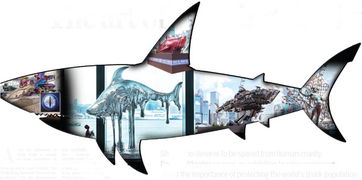Content:
Embarking on the journey of learning to fish can be an exciting yet daunting experience for the beginner angler. With countless techniques, equipment, and strategies to consider, it's easy to feel overwhelmed. However, with a solid foundation and a willingness to learn, anyone can become a skilled angler. In this article, we'll guide you through the essential steps and tips to help you master the art of fishing, even if you're starting from scratch.
Understanding the Basics
Before diving into the nitty-gritty of fishing techniques, it's crucial to understand the basics. Here are some fundamental concepts to grasp:
Types of Fishing: Familiarize yourself with the different types of fishing, such as freshwater, saltwater, fly fishing, and spin fishing. Each type requires specific techniques and equipment.
Fishing Equipment: Learn about the various fishing gear, including rods, reels, lines, hooks, lures, and bait. Knowing what each piece does and how to use it is essential for a successful fishing trip.
Fishing Knots: Mastering basic fishing knots is vital for securing your line, hooks, and lures. Common knots include the improved clinch knot, the Palomar knot, and the uni knot.
Fishing Ethics: Understand the importance of ethical fishing practices, such as respecting the environment, releasing fish unharmed, and following local fishing regulations.
Choosing the Right Equipment
Selecting the right equipment is the first step towards becoming a proficient angler. Here's what you need to consider:
Rod and Reel: Choose a rod and reel that match the type of fishing you plan to do. For example, a spinning rod and reel are ideal for freshwater fishing, while a baitcasting setup is better for saltwater.
Line: The type of line you use depends on the fish you're targeting and the environment you're fishing in. Monofilament, fluorocarbon, and braided lines each have their advantages and disadvantages.
Hooks and Lures: Hooks come in various sizes and shapes, and lures mimic the movement of real fish. Experiment with different hooks and lures to see what works best for the fish you're targeting.
Bait: Depending on your fishing style, you may use live bait, artificial lures, or both. Live bait can be more effective, but artificial lures are easier to use and can be more versatile.
Developing Your Technique
Once you have the right equipment, it's time to develop your fishing technique. Here are some key tips:
Cast Your Line: Practice casting your line until you can do it with precision. Pay attention to your grip, stance, and the timing of your cast.
Bait Presentation: Learn how to present your bait or lure in a way that attracts fish. This may involve varying your retrieve speed, depth, and angle.
Reading the Water: Pay attention to the water's surface and behavior. Fish often exhibit specific patterns, such as rising to the surface or moving in a particular direction.
Setting the Hook: When a fish bites, set the hook quickly and firmly. This ensures you'll have a better chance of landing the fish.
Reeling in: Once you've hooked a fish, reel it in slowly and steadily. Avoid reeling too fast, as this can cause the fish to break free.
Advanced Techniques
As you become more comfortable with the basics, you can start exploring advanced fishing techniques:
Trolling: Trolling involves dragging a lure or bait behind a moving boat. It's an effective method for catching fish in deeper waters.
Jigging: Jigging involves repeatedly lifting and dropping a weighted lure to mimic the movement of a struggling fish.
Fly Fishing: Fly fishing requires a different approach, with a specialized rod, line, and fly. It's a technique that can be both challenging and rewarding.

Night Fishing: Night fishing can be a unique experience, as fish often exhibit different behaviors at night. Use different lures and baits to target nocturnal species.
Conclusion
Learning to fish can be a rewarding and enjoyable hobby. By starting with the basics, choosing the right equipment, and practicing your technique, you'll be well on your way to becoming a skilled angler. Remember to always respect the environment and practice ethical fishing. With patience and persistence, you'll soon be reeling in fish with confidence and skill. Happy fishing!












